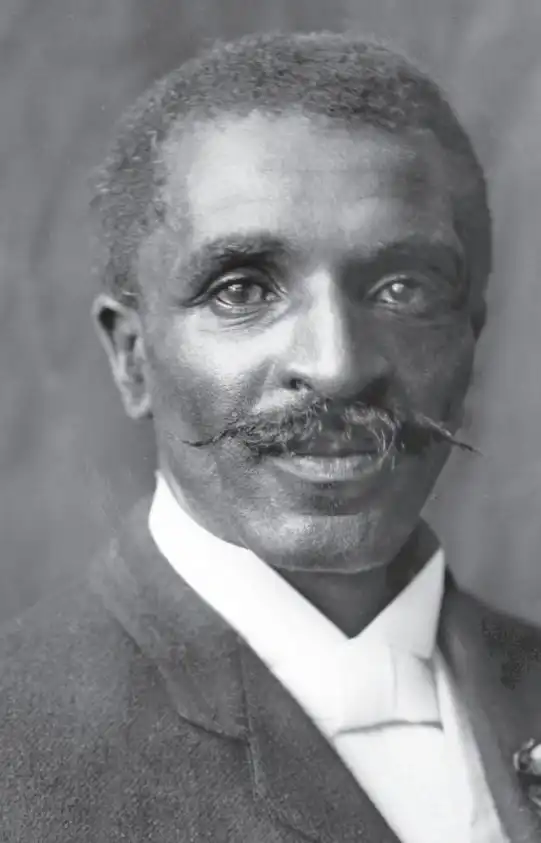
3 minute read
Opinion: After Prison, There Must Be Housing
from INNER-CITY NEWS
Part 2 of our 4-part series in celebration of Black History Month IN CELEBRATION


Of History Month
by ROBYN PORTER, DANIELLE COOPER and JACOB WERBLOW
When someone is released from prison, when their sentence has ended, where should they go if they do not have a place to live?
Who should they turn to for help with basic necessities?
What is the humane way to treat someone who has served their time in prison and is now trying to restart their life?
Would you believe that individuals in Connecticut, when released from prison, are often dropped off in the middle of our cities and towns with their bags, which might be all of their possessions…with no place to live, no place to go?
Yes, believe it.
Right before the pandemic, I (Representative Porter) received a phone call from a friend and community health worker: A man had been released from prison, end of sentence, and was dropped off near the New Haven Green.

When we arrived downtown to meet him, we watched as a state vehicle from the Connecticut Department of Correction opened the door and dropped off him and his belongings.
This man was an amputee, who walked with crutches, and there he arrived alone. It’s obvious that he wouldn’t be able to carry his bags by himself. He didn’t have anywhere to stay, didn’t have any money, and he didn’t know where he was going to receive his next dialysis treatment on Monday.
I stood in shock wondering what he would have done without our help. How would he have managed?
In fact, hundreds of individuals finishing their prison sentences are similarly dropped off in our cities and towns across Connecticut each month. They are left holding their bags with nowhere else to go and no place to live. This is immoral and inhumane.
So, what do we expect to happen to a person in this situation? A person who might have spent several years in prison and is now left in the middle of a city center with no means of work and no place to sleep. Should we then be surprised when individuals released from prison under these circumstances are soon after rearrested?
This begs the questions, “What should happen? What would be a more humane way to release people from prison who do not have permanent housing? How should we help people return to society?”
Recently we joined UCONN’s Institute for Munici- pal and Regional Policy’s (IMRP) fact-finding mission in Norway to explore their correctional service system, which is known for being the most humane and evidence based.
In Norway, approximately half of the people released from the Indre Østfold prison, a maximum-security prison in Mysen, have no permanent place to live, so the staff from the prison work with the local municipalities to help the individuals find temporary housing. No one is put on the street and expected to figure it out alone.
When Norwegians have been convicted of a crime their punishment is their sentence and loss of freedom, the rest is rehabilitation. Everyone working in the correctional system does their part to help these individuals successfully reintegrate while treating them humanely and with the normality that reflects life in society.
At the very least, we should expect Connecticut to collaborate with local housing authorities to ensure that people returning from prison have a place to stay — even if it’s temporary housing.
Literally, as we are writing this paper, Representative Porter received an email from a university student, majoring in Business, who wants to open a transitional housing and homeless center to help people who were formerly incarcerated be able to thrive and not have to struggle to survive. Such an effort like this should be embraced as we need a state-wide commitment to having housing and transitional support to help released individuals find employment and eventually permanent housing.
It’s time that we treat our returning citizens with dignity and respect. People who have served time in prison have paid their debt to society and should be given the basic tools they need to reintegrate successfully.
Lest we forget, as they return to our communities, they are our neighbors, and our futures are intertwined.
Rep. Robyn A. Porter has been representing Hamden and New Haven’s 94th district for almost a decade. She co-chaired the Labor and Public Employees committee for the past six years, sits on the Appropriations and Judiciary committees, and is the Chief Majority Whip.
Dr. Danielle T. Cooper is an Associate Professor of Criminal Justice and Director of Research for the Tow Youth Justice Institute, both in the Henry C. Lee College of Criminal Justice and Forensic Sciences at the University of New Haven.
Dr. Jacob Werblow is a professor in the School of Education and Professional Studies at Central Connecticut State University and a former U.S. Fulbright Scholar (Kyoto, Japan).
Honors
Visionaries In Humanity
From the advances in education by Booker T. Washington, to the inventions of George Washington Carver, Dr. Patricia Bath and Dr. Shirley Jackson, to the pivotal role Rosa Parks played in the civil rights movement, to Barack Obama becoming our country’s first black president, Boscov’s celebrates courageous African-American humanitarians everywhere for their accomplishments and all the contributions that they have made in education, science, technology, and beyond.












